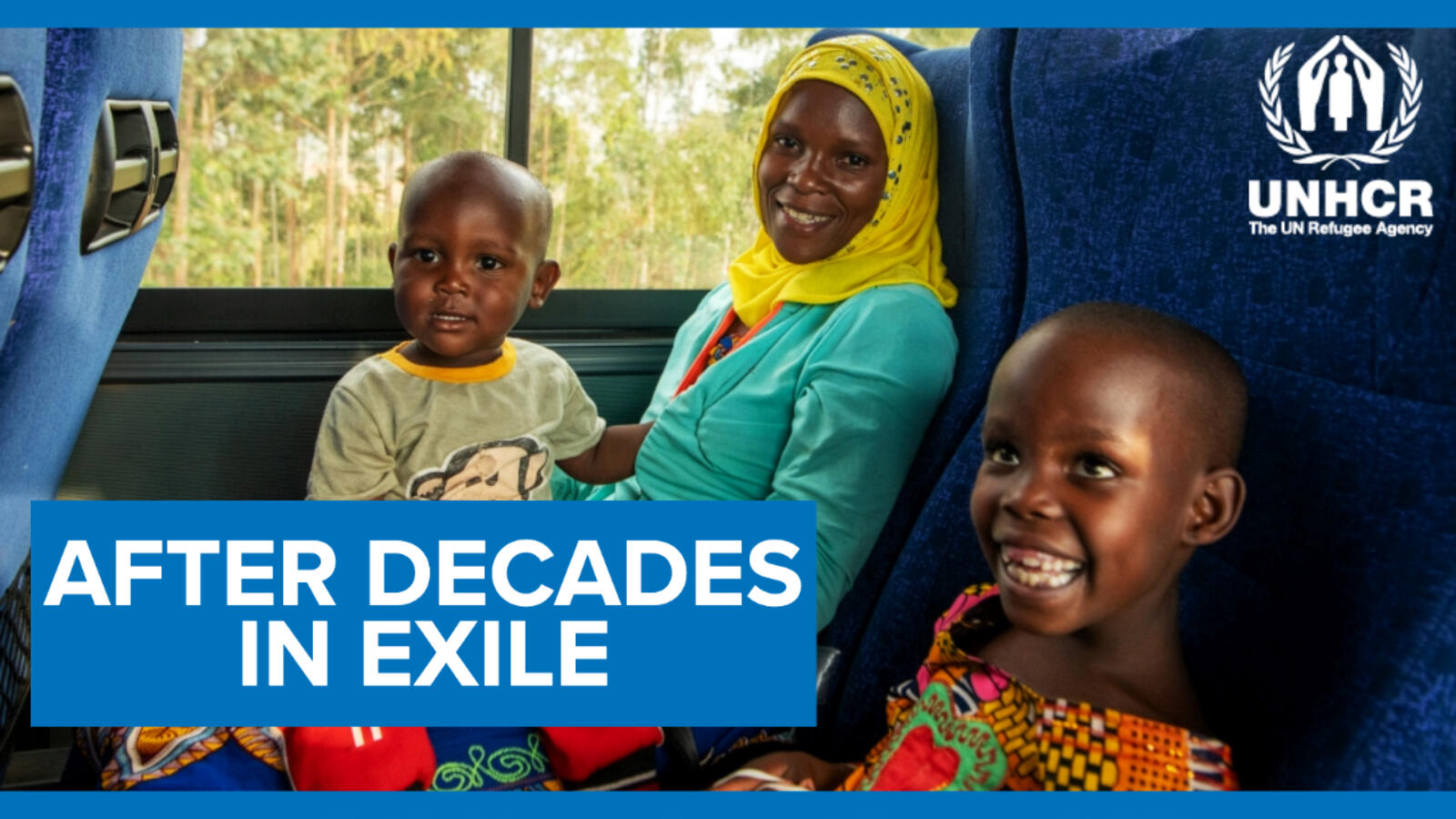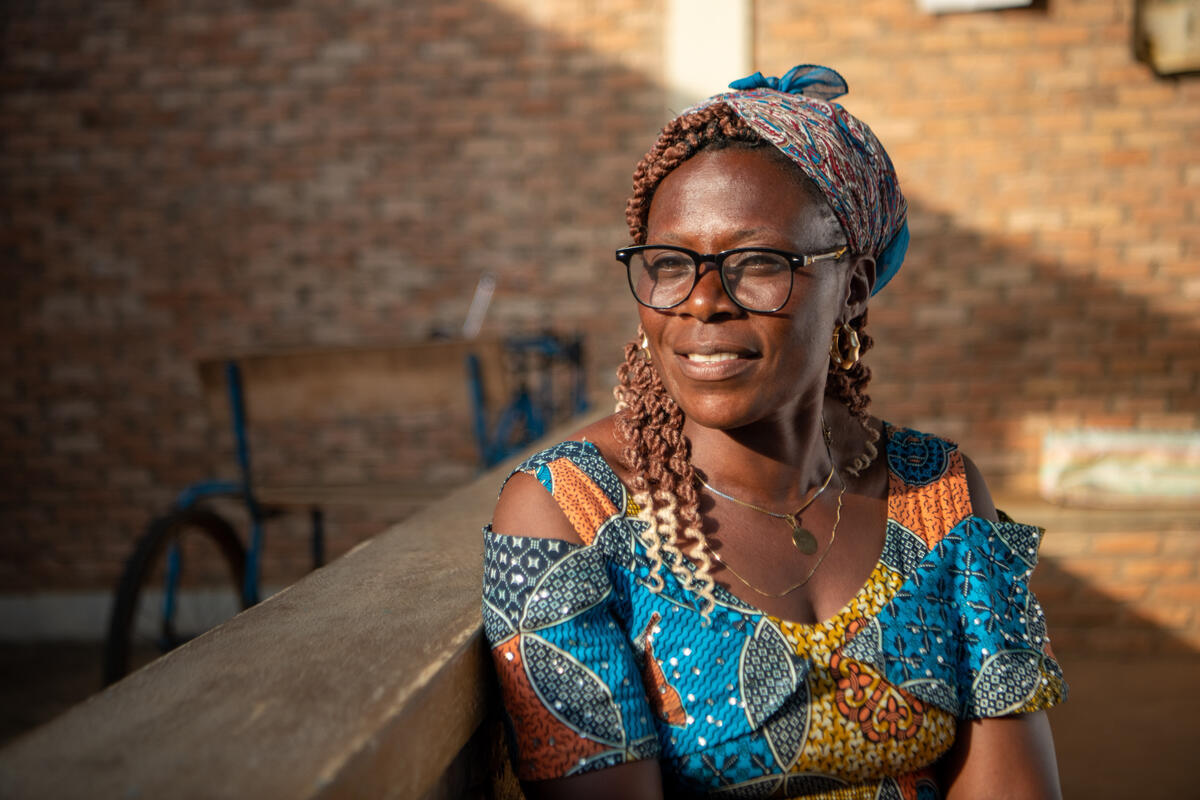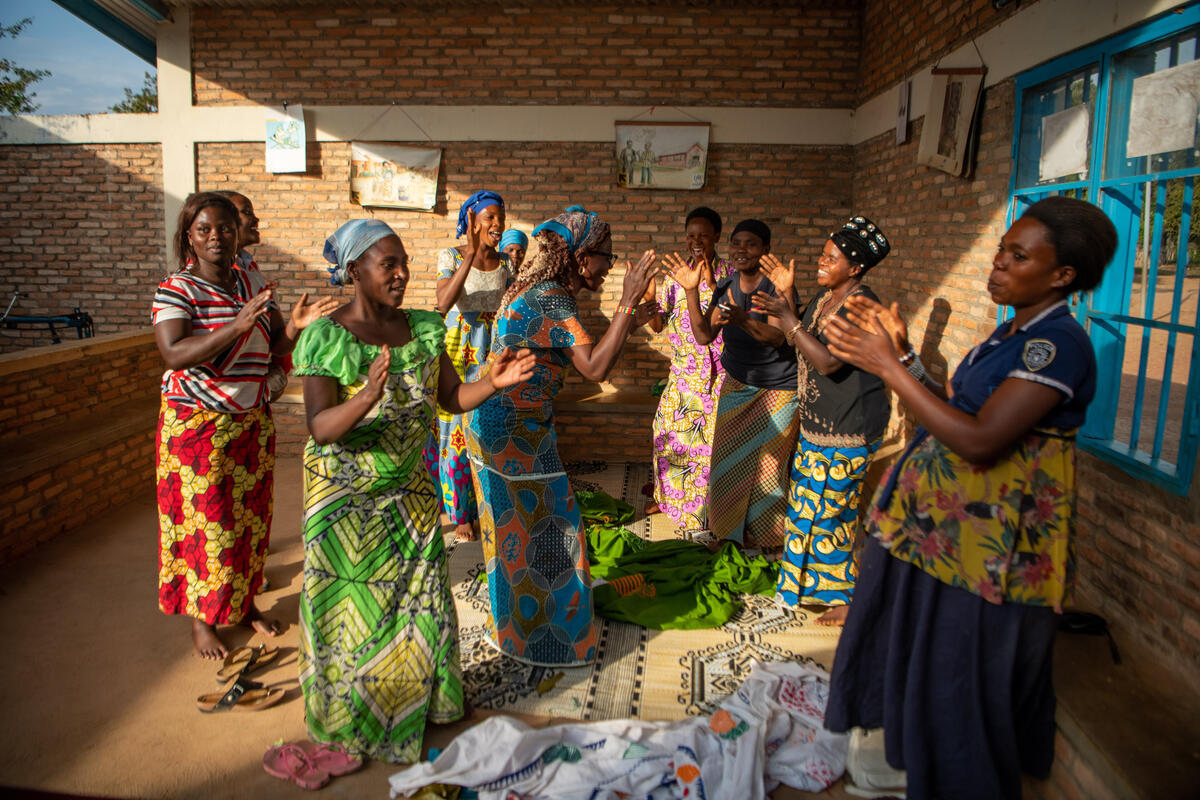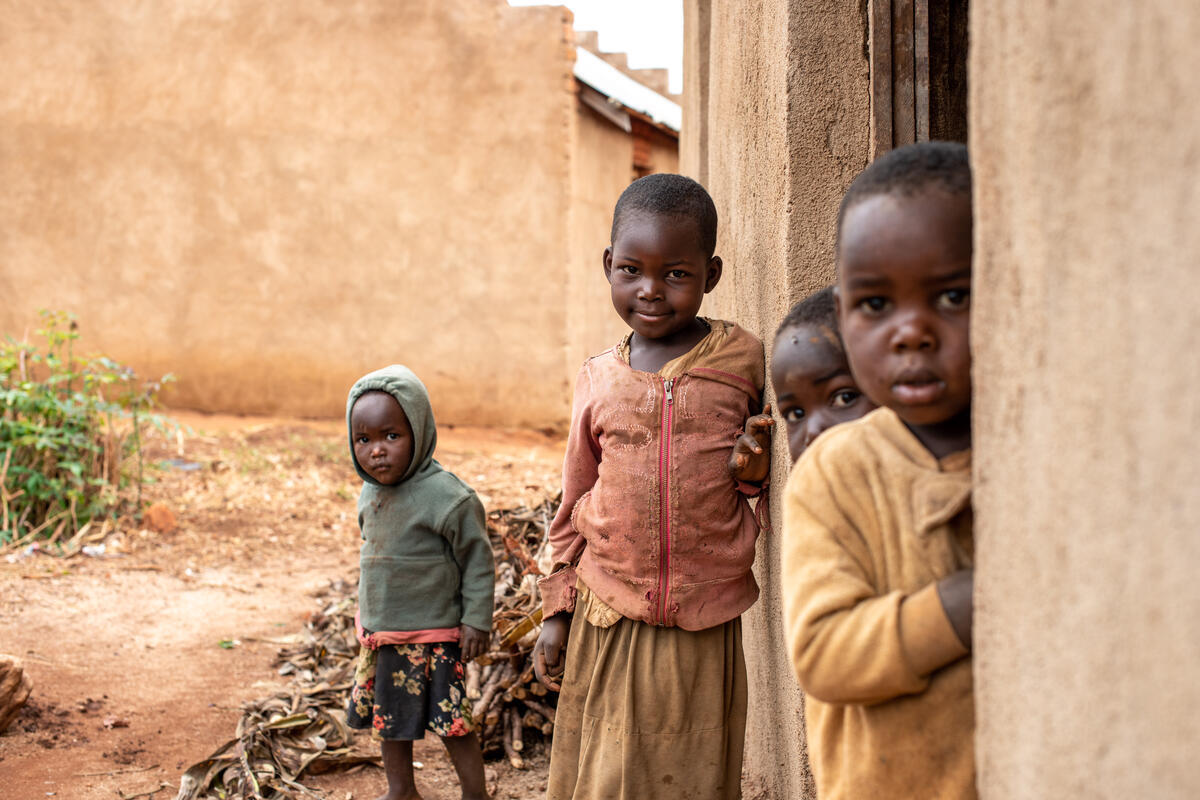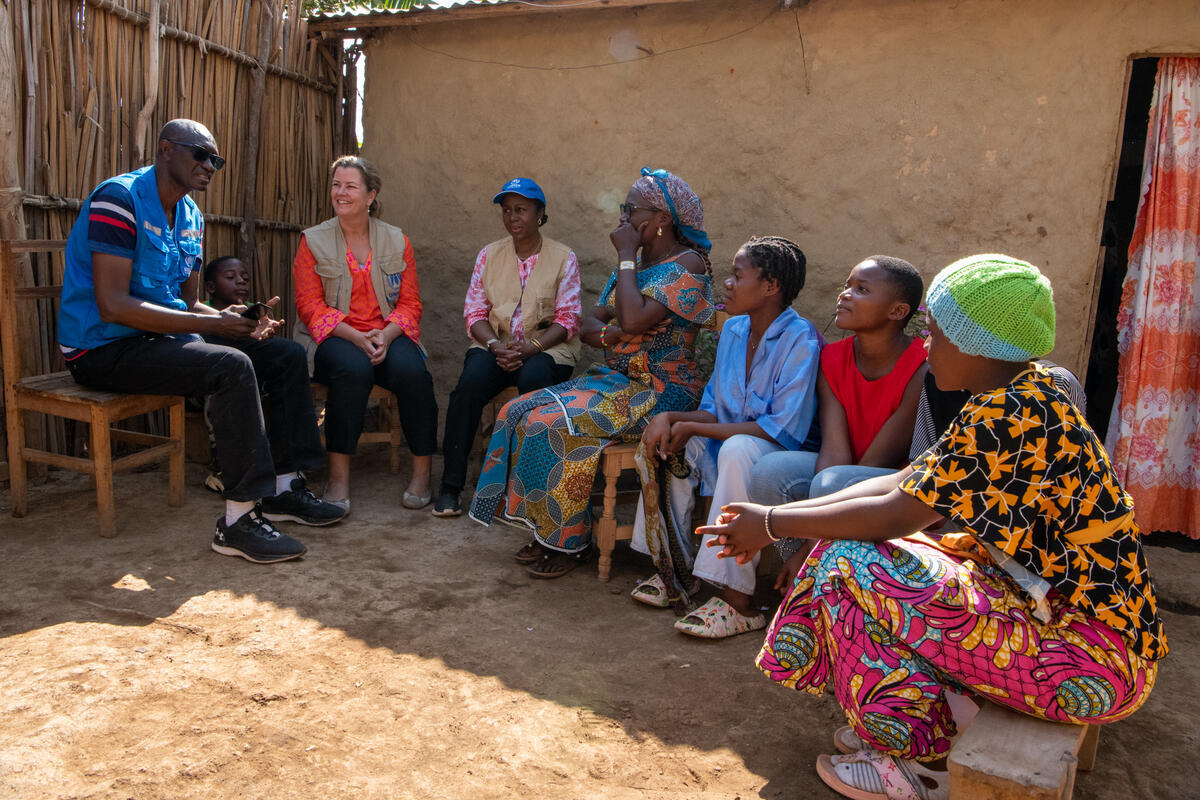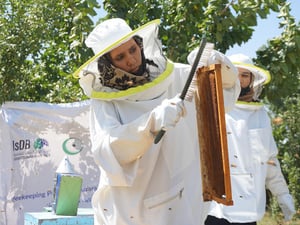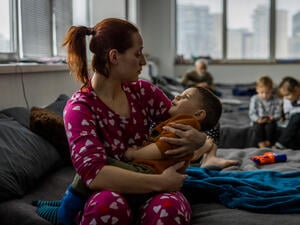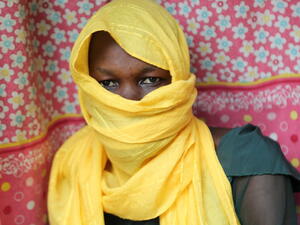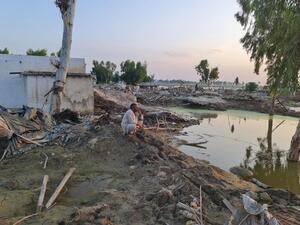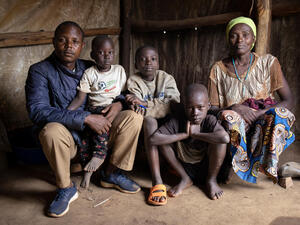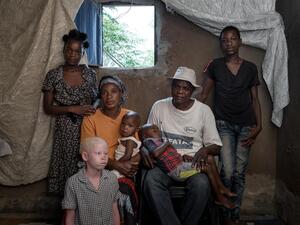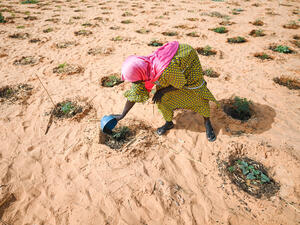Burundi needs more support to give returnees and refugees a fresh start
Burundi needs more support to give returnees and refugees a fresh start
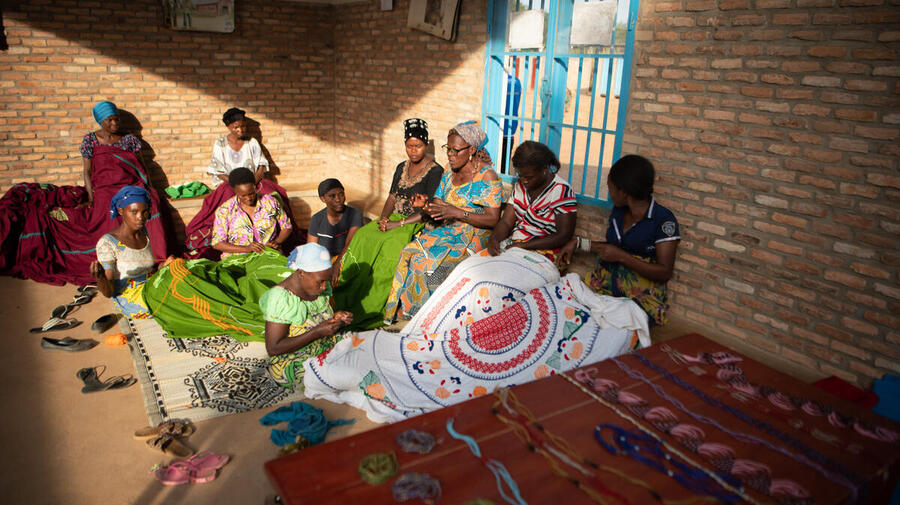
Congolese women living in Burundi's Nayakanda refugee camp embroider fabric, which they sell and share the proceeds.
“Since my return, I have had a roof over my head,” said Helena Ntakirabutimana, who came back to Burundi in 2020. “But without land to cultivate, I have difficulty finding food every day.”
The 72-year-old grandmother first sought refuge in Tanzania half a century ago when inter-ethnic violence roiled the country. She stayed away for decades, before returning in 2008, by which time she had become a mother of 12 children.
However, Ntakirabutimana was forced to flee again in 2015 when political unrest led to widespread violent clashes.
She returned for a second and, she hopes, final time two years ago to live in Musenyi, in the hills 150 kilometres south of the capital Bujumbura. Burundi’s current peace and stability made Ntakirabutimana’s return possible, but life remains a struggle, with jobs scarce and the economy weak.
Ntakirabutimana’s neighbours willingly share their own meagre resources with her, and while she is grateful for both the shelter and security she now enjoys, she lacks much else.
“A small plot of land to cultivate, or some capital to start a small business, is what I need most right now,” she said. The economic insecurity faced by returnees has meant her children have remained in exile in Tanzania.
Ramadhani Chongera, 40, was overjoyed when he recently returned to Burundi after years living as a refugee in Tanzania with his wife and three children. Willing and eager to work, he too has been confronted by the difficult economic realities of life in Burundi, and of integration.
“We came back empty-handed, but with the hope of being able to have a home and the opportunities that will allow us to rebuild our lives in our country,” he said. But the difficulty of finding work means he struggles to feel part of the society and the community to which he has returned.
“Having the opportunity to work to earn our daily bread would undoubtedly help our reintegration, and allow us to feel like ordinary Burundians,” Chongera said.
In addition to welcoming its returning citizens, Burundi also hosts more than 87,000 refugees and asylum seekers from other countries, the majority from neighbouring Democratic Republic of the Congo (DRC).
The Nyankanda refugee camp in the east of the country is home to some 10,000 Congolese refugees who work alongside their Burundian neighbours, building solidarity through shared activities such as baking, fish farming, and carpentry.
Pascaline Sango Ngena, 49, fled violence in her village of Kafulo in DRC’s South Kivu province in 2019, before settling in Nyankanda camp with her six children.
Despite the daily challenges of refugee life, Ngena has thrown herself into the camp community supervising a sewing team that shares the proceeds from fabric sales among its members, in addition to contributing to enhanced social cohesion between Congolese refugees and their host community, through projects that benefit both, such as a tree-planting.
“We plant trees to green our environment and reduce the impact of deforestation around the camp,” Ngena said. “The trees also provide fruits that help improve the children's nutrition.”
"While waiting for the security situation to improve and for us to be able to return home, we are doing our best to live harmoniously with the communities that have so generously welcomed us," Ngena said.
During a recent visit to Nyankanda camp, UN Deputy High Commissioner for Refugees, Kelly T. Clements, was impressed by the dynamism and collaboration between Congolese refugees and their Burundian hosts.
“Congolese refugees are very creative,” she said, adding “the collaboration was exemplary”.
But Clements said more had to be done, both for refugees hosted in Burundi and for Burundians, such as Ntakirabutimana and Chongera, who have recently returned to their home country. Expanding partnerships with development partners, international financial institutions and the private sector will be key.
However, the funding needed to improve integration prospects and find lasting solutions for both returnees and refugees is yet to be secured. UNHCR has so far raised only a third of the US$80.5 million needed to fund its activities in Burundi this year.
“We need extensive support to enable all these families to reintegrate sustainably,” Clements said. “This includes access to basic services, such as school for children. It is also essential to ensure greater access to economic opportunities.”

